Britain & Ireland 1745-1901
The relationship between Britain and Ireland is explored here across a number of articles. Particular themes assessing and exploring social reform on matters such as housing, industrial change and emerging civil rights are included here. Key individuals from the world of politics, science and women’s rights are also examined in detail.
Sort by:
Date (Newest first) | Title A-Z
Show:
All |
Articles |
Podcasts |
Multipage Articles
-

What Have Historians Been Arguing About... schooling and the British Empire
ArticleClick to view -
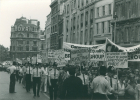
What Have Historians Been Arguing About... Modern British LGBTQ+ history
ArticleClick to view -
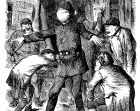
How visual evidence reflects change and continuity in attitudes to the police in the 19th and early 20th centuries
ArticleClick to view -
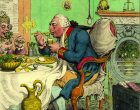
Why history teachers should not be afraid to venture into the long eighteenth century
ArticleClick to view -

Using eighteenth-century material culture to develop evidential thinking in Year 8
ArticleClick to view -

‘But they just sit there’: using objects as material culture with Year 8
ArticleClick to view -

What Have Historians Been Arguing About... the consequences of the industrial revolution
ArticleClick to view -

Helping Year 8 to understand historians’ narrative decision-making
ArticleClick to view -

Recorded Webinar: Female slave-ownership in 18th and 19 century Britain
ArticleClick to view -

Investigating ‘sense of place’ with Year 9 pupils
ArticleClick to view -

Ensuring Gypsy, Roma and Traveller children do not feel unseen in the history classroom
ArticleClick to view -
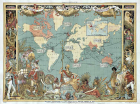
Navigating the ‘imperial history wars’
ArticleClick to view -

What Have Historians Been Arguing About... expanding the reach of the American Revolution
ArticleClick to view -

Putting black into the Union Jack: weaving Black history into the Year 7 to 9 curriculum
ArticleClick to view -

What Have Historians Been Arguing About... the impact of the British Empire on Britain?
ArticleClick to view -

Decolonise, don’t diversify: enabling a paradigm shift in the KS3 history curriculum
ArticleClick to view -

Diversifying the curriculum: one department’s holistic approach
ArticleClick to view -
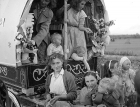
Teaching Gypsy, Roma and Traveller history
ArticleClick to view -

Film: Attic Inscriptions
ArticleClick to view -

Census 2021: using the census in the history classroom
ArticleClick to view

